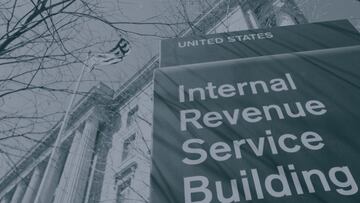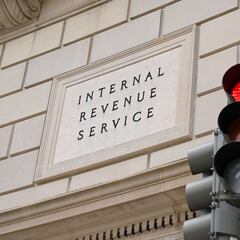Is there a penalty for filing for an IRS Tax Extension?
Millions of US taxpayers have yet to file their 2022 tax return. If you need more time you can request an extension to avoid incurring additional costs.

The vast majority of US taxpayers have already submitted their 2022 tax returns to the IRS. The agency reports that it has received over 101 million filings as of 7 April. However, with just days to go until the Tuesday 18 April deadline, there are still millions who have yet to do so.
If you are one of those people and you need more time, you can request an extension to avoid incurring additional costs but you need to do so by Tuesday18 April. There is no penalty for applying for an extension to get more time to hand in your tax documents, but you will still need to pay, to the best of your knowledge, any taxes that you owe to avoid penalties and interest accruing on your debt with Uncle Sam.
Failing to file a tax return can incur penalties
If you are required to submit a tax return, missing the 18 April filing deadline could result in the IRS imposing a failure-to-file penalty. The penalty is 4.5 percent on any underpayment of taxes for each month, or part thereof, that a tax return is late.
The penalty will max out five months after taxes are to be filed, 18 April or with an extension 16 October 2023, and won’t exceed 25 percent. The late filing penalty is calculated based on the tax that remains unpaid after April 18 or, if an extension is granted, after 16 October 2023.
Won’t make the tax deadline? Get six more months to file your return with Free File: https://t.co/3byJqk9fiF; Can’t pay the full amount you owe? #IRS will work with you: https://t.co/D6gSHvlDwX pic.twitter.com/0ZA3bUdpp8
— IRSnews (@IRSnews) April 13, 2023
How to apply for an tax extension
Individual taxpayers can use the Free File tool to electronically request an automatic extension for filing taxes using Form 4868 (SP). In order to obtain the extension, you must estimate the tax liability and pay any amount due.
Another fast, free, and easy way to get an extension includes using the IRS Direct Pay option. When you make an electronic payment and indicate that it is for an extension, the IRS will automatically process the extension.
Failing to pay your tax bill will incur penalties and interest
Remember that even if you apply for an extension to file your paperwork at a later date, you still need to pay any taxes you owe to the IRS. If you can’t pay all that you owe in taxes, you can set up a payment plan with the IRS. Depending on the type of plan and your income you may be able to establish one at no cost. Additionally, the failure-to-pay penalty is reduced by half to a quarter of a percent.
Remember: An extension to FILE isn’t an extension to PAY. https://t.co/MgVpkMcZGI #IRSTaxTip pic.twitter.com/QI1xn4XkOy
— IRSnews (@IRSnews) April 14, 2023
Related stories
Otherwise, the penalty is half a percent of your outstanding tax debt for each month or part of a month as long as it goes unpaid. However, if tax is not paid within 10 days of a notice of intent to levy or seize property the penalty is 1%. The penalty will not exceed 25 percent of the taxes owed.
In addition to the penalties, the IRS will start charging interest on any unpaid balance of taxes owed which will accrue and compound daily from 18 April until the balance is paid in full. The current interest rate for the second quarter of 2023, April to June, for underpayments is 7 percent for corporate and non-corporate filers which is calculated using the federal short-term rate plus three percentage points. Any outstanding penalties will also accrue interest while they remain outstanding so it is vital that you pay your taxes on time.


